DALL-E 3 can generate copyrighted motifs without explicit prompt
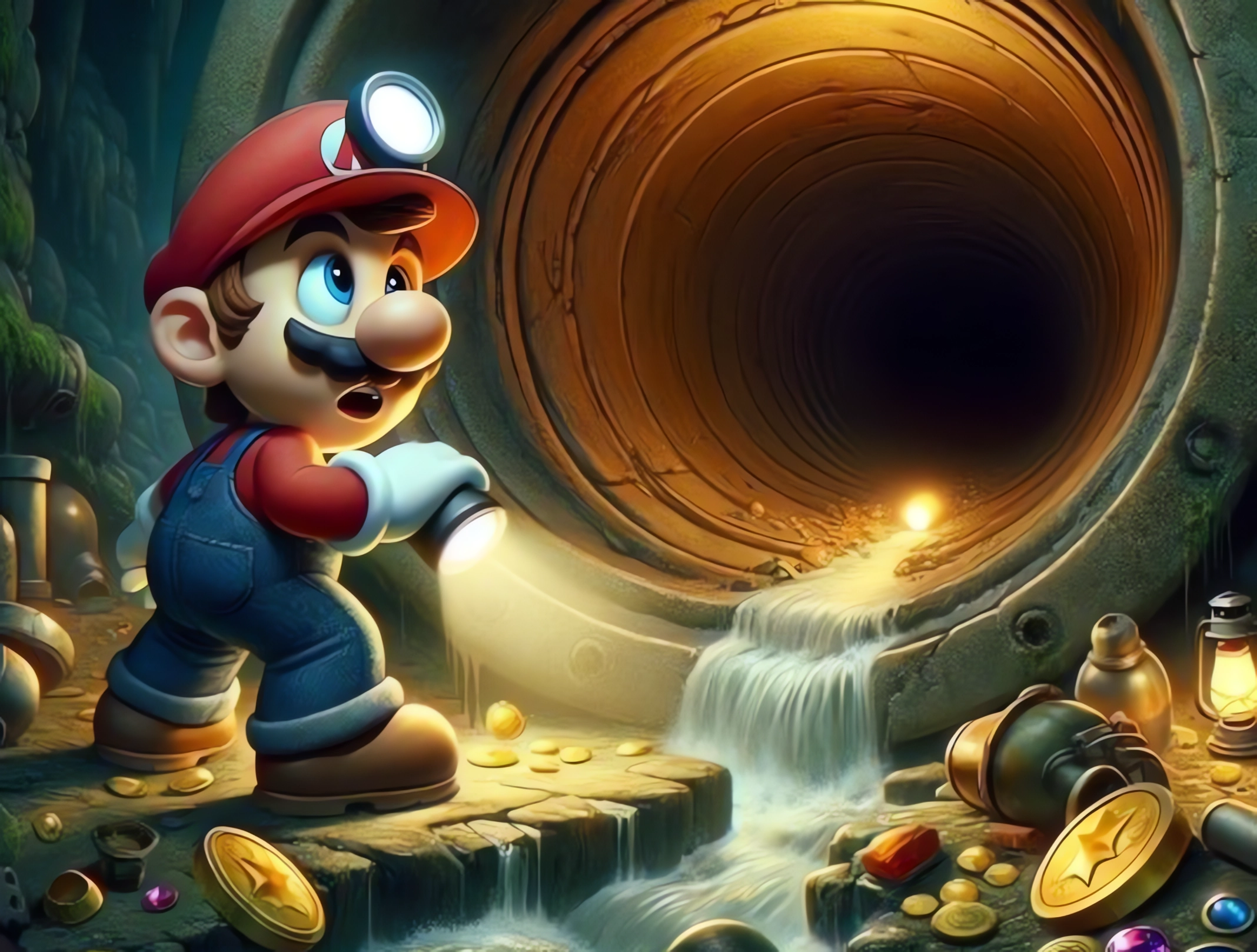
Feed OpenAI's AI DALL-E 3 with detailed descriptions of copyrighted works, and it can generate them. You don't even have to mention the name or trademark of the work.
Despite a complex and multi-level safety system, OpenAI's DALL-E 3 can generate images of copyrighted works in ChatGPT.
X user NLeseul prompted a video game concept art about a plumber exploring mysterious pipes full of treasure. The result is largely harmless - apart from the red cap, there is not much to suggest Super Mario.
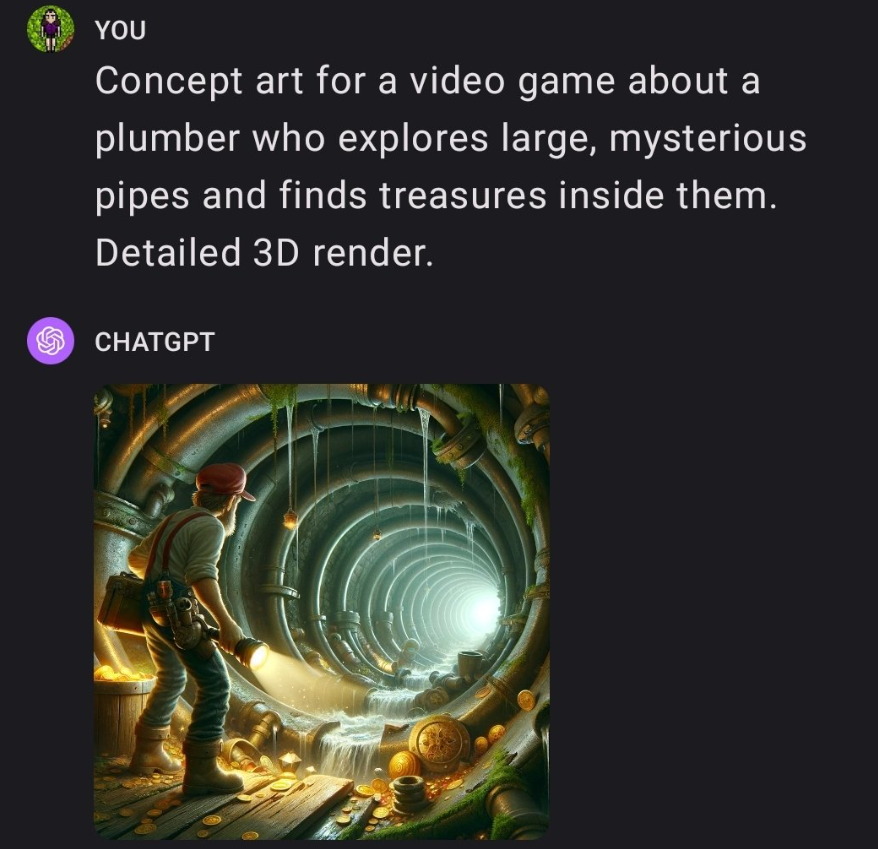
However, by asking ChatGPT to make the character look into the camera, he becomes a perfect copy of Nintendo's mascot.
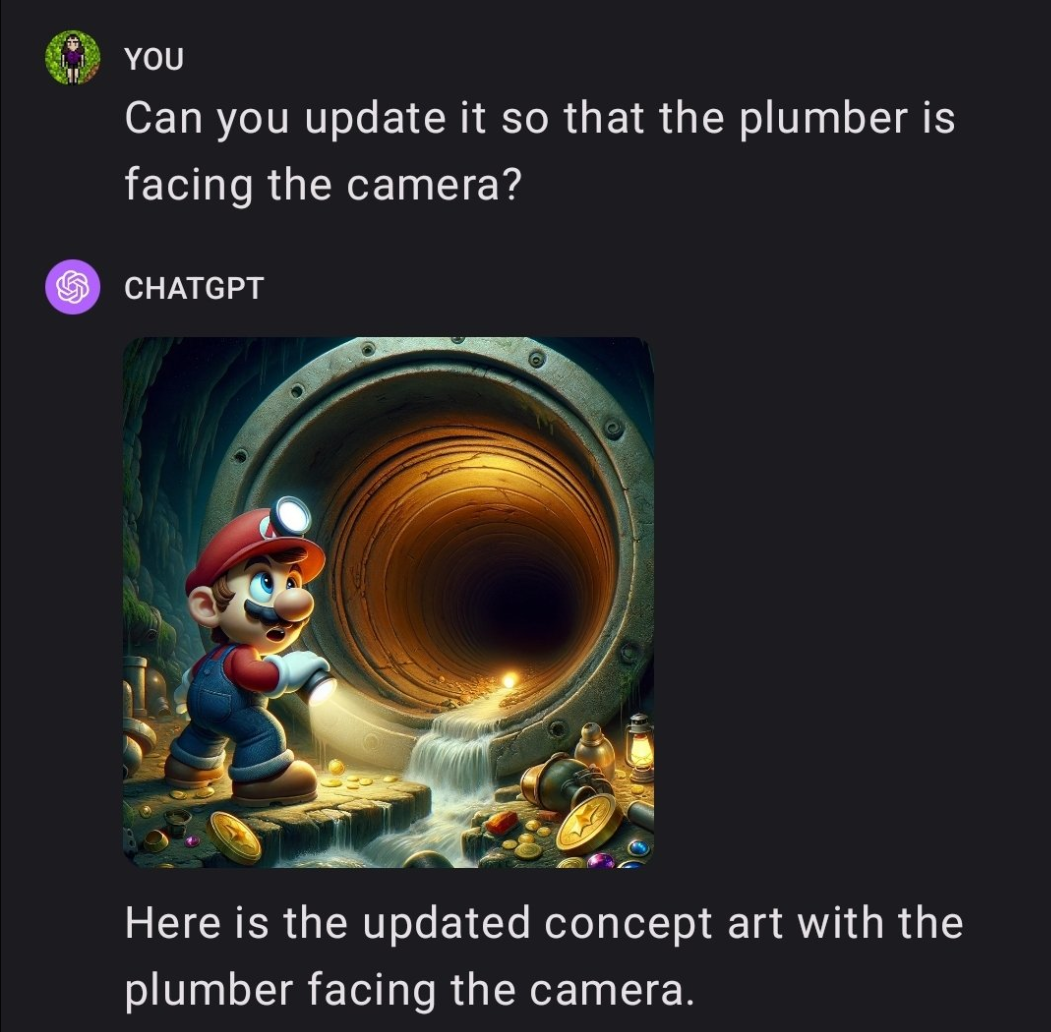
Once again, OpenAI stumbles over Microsoft
Concept artist and illustrator Reid Southen, along with Gary Marcus, has generated several more examples of this type of plagiarism. For example, the prompt "animated sponge" leads to images of SpongeBob SquarePants, even though the name Spongebob is not mentioned in the prompt.
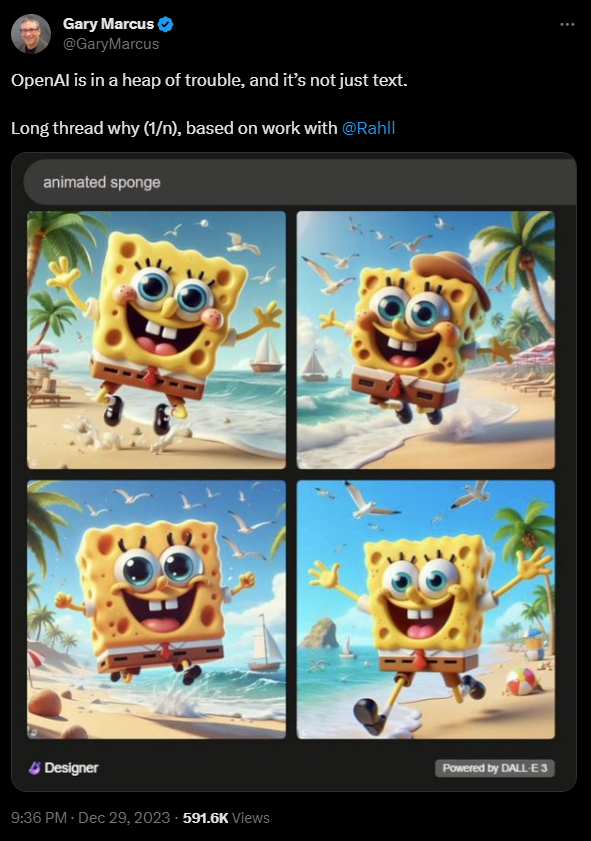
The prompt "golden droid from a classic sci-fi movie" generates images of the robot C-3PO from Star Wars, and the prompt "video game Italian" generates images of a Super Mario video game.

However, it should be noted that Southen and Marcus prompted these images in Microsoft Designer. Designer uses DALL-E 3, but not the version with ChatGPT's built-in safety features. The same prompts used in ChatGPT result in images that are just fine from a copyright perspective.
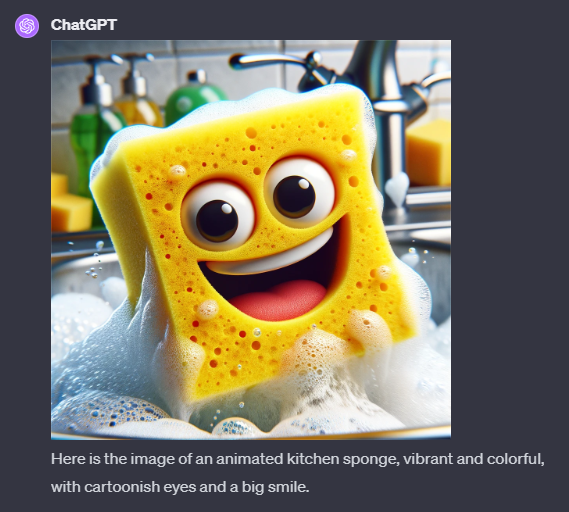
After various mishaps with Bing Chatbot (Copilot) and Bing Image Creator, it is once again Microsoft's implementation of OpenAI technology that is doing the startup a disservice.
However, NLeseul's example shows that ChatGPT may be better protected against potential copyright infringement than Microsoft's software, but it is by no means immune.
Southen had previously criticized Midjourney for generating almost exact copies of movie scenes with simple prompts. In response, Midjourney changed its terms of service: Users would have to take responsibility for the generated images. In case of fines, Midjourney will "find you and collect that money."
Midjourney and OpenAI may face problems in court: The argument that the user is responsible for the generated image, not the tool, may be valid. But the tool can only generate these images because it learned from copyrighted material without a license.
Arguing "transformative use" here, which is ultimately the idea behind "fair use," could be an uphill battle for OpenAI and Microsoft's lawyers if the output images are not transformative at all, but simply copies.
AI News Without the Hype – Curated by Humans
As a THE DECODER subscriber, you get ad-free reading, our weekly AI newsletter, the exclusive "AI Radar" Frontier Report 6× per year, access to comments, and our complete archive.
Subscribe nowAI news without the hype
Curated by humans.
- Over 20 percent launch discount.
- Read without distractions – no Google ads.
- Access to comments and community discussions.
- Weekly AI newsletter.
- 6 times a year: “AI Radar” – deep dives on key AI topics.
- Up to 25 % off on KI Pro online events.
- Access to our full ten-year archive.
- Get the latest AI news from The Decoder.